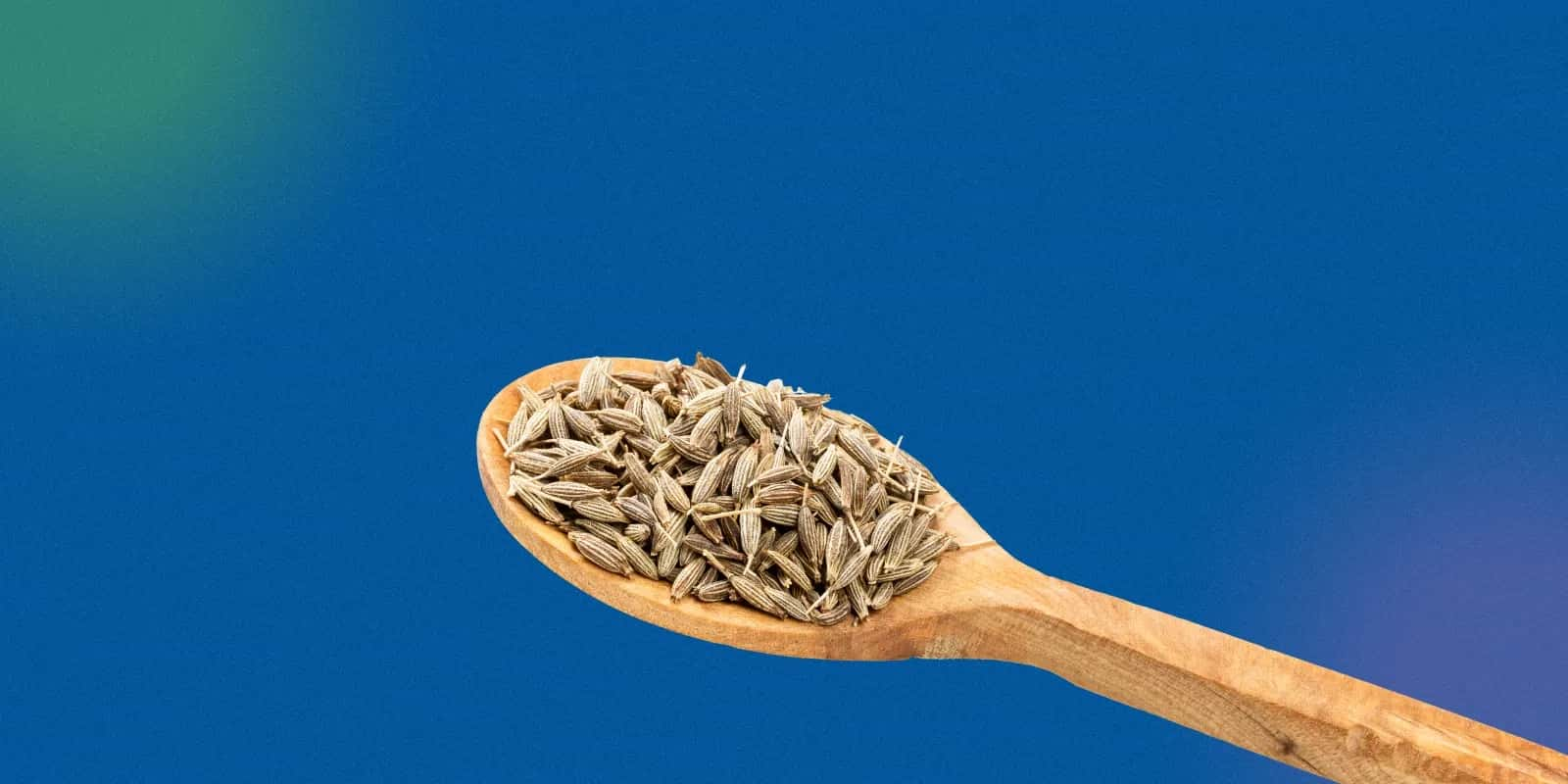Cumin Seeds & Jeera Water: Benefits, Uses & Side Effects Explained

Introduction
To live a healthy life in an environment full of pollution, stress, trauma and hybrid veggies, many people are turning to ancient Indian home remedies. One of them is drinking cumin seed water in the morning. Cumin seeds are used in one way or another in almost all households in India. Whether it's for curries, making masalas, or simply drinking cumin seed water.
Cumin is not only famous for its flavour and aroma but also has several health benefits. This magical potion is beneficial against indigestion and flatulence. Other health issues, such as ulcers, pimples, hair loss, colon cancer, breast cancer, and more, can be prevented by consuming cumin seed water.
All in all, cumin seeds are more than just a spice; they're packed with healthy benefits.
In this blog, we will explain what cumin seeds are, the nutritional value of cumin seeds, the health benefits of cumin seeds, tips on how to make cumin seed water at home, and the side effects of cumin seed water.
What are Cumin Seeds (Jeera)?
Cumin, commonly known as jeera, is the dried seed of an annual herbaceous plant, C cyminum, a plant from the parsley family. Ayurveda, Unani, and Middle Eastern medicines have been using cumin, which is native to the Mediterranean and Southwest Asia, for centuries.
Cumin is a culinary and curative herb. It adds to the flavour of daals, curries and rice owing to its earthy and nutty flavour. But the meaning of cumin seeds lies beyond its taste. It’s in their therapeutic properties, ranging from a digestive aid to an immune booster.
Nutritional Value of Cumin Seeds
Cumin seeds are the powerhouse of antioxidants, vitamins and essential oils.
Per 100 grams of Cumin seeds:
- Protein: 17.8 g
- Carbohydrates: 44.2 g
- Fibre: 10.5 g
- Iron: 66.4 mg (370% RDA)
- Calcium: 931 mg
- Magnesium: 366 mg
Cumin is also a source of micronutrients as it contains vitamins E, C, A, and B-complex.
Health Benefits of Cumin Seeds in Daily Life
Consuming jeraa or cumin seeds offers a lot of health benefits, such as:
- Improves digestion: Stimulates enzymes needed for better nutrient absorption.
- Boosts immunity: Rich in antioxidants like apigenin and luteolin.
- Relieves flatulence: Reduces bloating and gas discomfort.
- Regulates blood pressure: Due to potassium and magnesium content.
- Enhances skin and hair: Antioxidants and antibacterial oils promote glowing skin and a healthy scalp.

Benefits of Drinking Cumin Seed Water Every Day
It has been a centuries-old Ayurvedic process to soak seeds of cumin in water and leave them overnight, and use them the next morning. Here are some of the top cumin seed water benefits:
1. Improves Digestion and Reduces Bloating
Drinking cumin seed water offers several benefits to the intestines, including promoting enzyme release, digestion, and preventing indigestion, constipation, and flatulence. It also relieves acid and tones the abdominal muscles.
2. Supports Weight Loss Naturally
Cumin seed water is beneficial in weight loss due to improved metabolism rate and fat burning. For years, cumin seed water has been a common remedy on people's kitchen counters for weight loss, often consumed alongside a balanced diet. It also has benefits in reducing hunger and water retention.
3. Detoxifies the Body and Boosts Immunity
The liver and kidneys are cleansed of toxins through cumin seed water, which utilises its antioxidant properties. The detoxification aids in fortifying the immunity naturally.
4. Good for Skin and Hair Health
Cumin seed water is beneficial for cleansing the blood and reducing oxidative stress, resulting in fresher, more moisturised skin that we all desire. Many women also use cumin seed water to minimise acne and scalp inflammation.
White Cumin Seeds Benefits vs Regular Jeera
Cumin seeds are available in two varieties: white cumin seeds and black cumin seeds.
- Benefits of white cumin seeds:
- Milder flavour
- Less bitter than black cumin
- Ideal for general wellness use
Black cumin seeds, popularly known as kalonji, though different in spices, have several medicinal uses. However, for daily consumption of cumin seed water, white cumin seeds are preferred due to their better taste and tolerability.
How to Make Cumin Seed Water at Home?
Here's how to make cumin seed water at home:
- Add one to two teaspoons of cumin seeds to one glass of water.
- Soak overnight (six to eight hours).
- Boil for five minutes (optional for stronger extract).
- Strain and drink warm on an empty stomach.
- Add honey or lemon juice for enhanced flavour and added health benefits.

Best Time to Drink Jeera Water for Results
Here are some of the best times to consume cumin seed water:
- An empty stomach in the morning is best for digestion and metabolism.
- 30 minutes before meals: Helps reduce overheating and improves gut health.
- Before bedtime: Helps with bloating and insomnia.
Side Effects of Cumin Seed Water You Should Know
Other than a few cases of side effects, cumin seed water is usually safe in moderation, although overindulgence or prolonged use can lead to some negative effects. Let's take a look at them:
1. May Cause Low Blood Sugar
Cumin is a hypoglycaemic agent, and excessive ingestion of cumin seed water, particularly by medicinally treated diabetic patients, can cause sugar levels to dip to life-threatening levels. People who are diabetic and taking medications must first seek medical advice before taking cumin seed water on a routine basis.
2. Risk of Heartburn or Acidity
The irony is that cumin helps improve digestive matters, but excessive use of cumin seed water can raise stomach acid levels, causing heartburn or acidity.
3. Hormonal Imbalance in High Doses
Consuming cumin seed water can influence oestrogen levels, especially in women. High dosages are prohibited in pregnant or nursing mothers. The cumin seed water should be consumed under the supervision of an expert when wanting to lose weight.
4. Not Suitable for Everyone
People with bleeding disorders, low blood pressure, or hormone-sensitive conditions should consult a doctor before drinking jeera water daily. Common side effects of cumin seed water, though rare, include nausea, dizziness, and uterine contractions if overused.
Jeera as a Spice: More Than Just Taste
Beyond water, the jeera spice benefits extend to culinary and medicinal uses. It:
- Balances vata and kapha in Ayurveda
- Enhances the flavour of rice, sabzis, and dals
- Stimulates digestive enzymes when used in tempering
- Prevents spoilage when added to pickles
So, next time when you are using cumin seeds while cooking, know that it's helping your taste buds and your gut.
Summary: Should You Use Jeera Water Daily?
Cumin seed water is a natural remedy with numerous health benefits, ranging from improved digestion to enhanced immunity and beyond. By incorporating this simple yet potent drink into your daily routine, you can embark on a journey towards better health.
Cumin has a variety of benefits, ranging from helping improve your digestion to boosting your memory. Cumin may also prevent cancer cells from multiplying and help reduce pain with its anti-inflammatory properties.
By incorporating cumin into your daily routine, you can experience its ancient healing properties and move towards a healthier, more balanced life.
If you’re looking for natural ways to improve your well-being, start with cumin. And for personalised guidance, consulting your doctor or an Ayurvedic practitioner is always a good idea.

FAQs
Q. What happens if we drink jeera water daily?
A. Drinking jeera water daily may enhance digestion, boost metabolism, support weight loss, and improve skin health. It also helps reduce bloating and detoxify the body. However, excessive intake may lead to side effects like low blood sugar, acidity, or hormonal imbalances in sensitive individuals.
Q. How to prepare cumin seed water for weight loss?
A. Soak one to two teaspoons of cumin seeds in a glass of water overnight. Boil the mixture in the morning for a few minutes, strain, and drink it warm on an empty stomach. This natural drink boosts metabolism, reduces appetite, and aids fat breakdown when combined with healthy habits.
Q. What are the side effects of cumin water?
A. Potential side effects of cumin seed water include low blood sugar, heartburn, hormonal disturbances, and allergic reactions. Overconsumption can cause nausea or dizziness. Pregnant women, diabetics, and those with hormone-sensitive conditions should consult a doctor before making jeera water a regular part of their daily routine.
Q. Is there any benefit to white cumin seeds?
A. Yes, white cumin seeds offer digestive, anti-inflammatory, and antioxidant benefits. They support gut health, boost immunity, and aid in detoxification. Milder in flavour than black cumin, they are ideal for making jeera water and are well tolerated when consumed in moderation as part of a daily routine.
Q. Can I drink cumin water at night?
A. Yes, drinking cumin water at night can reduce bloating, improve digestion, and promote better sleep. It’s especially helpful after heavy dinners. However, if you experience acidity or disturbed sleep, limit intake to mornings or consult a healthcare professional to adjust the timing and quantity.

Coconut Water Outrage: Risks and Rewards of the Tropical Nectar

10 Health Benefits of Apple Cider Vinegar You Should Know

Simple Wellness Hacks for a Better Life – Quick and Easy

Chlorophyll Water: 10 Benefits and Risks of the Wellness Trend

Myth or Fact: Is Copper Water Actually Beneficial For Your Health?


